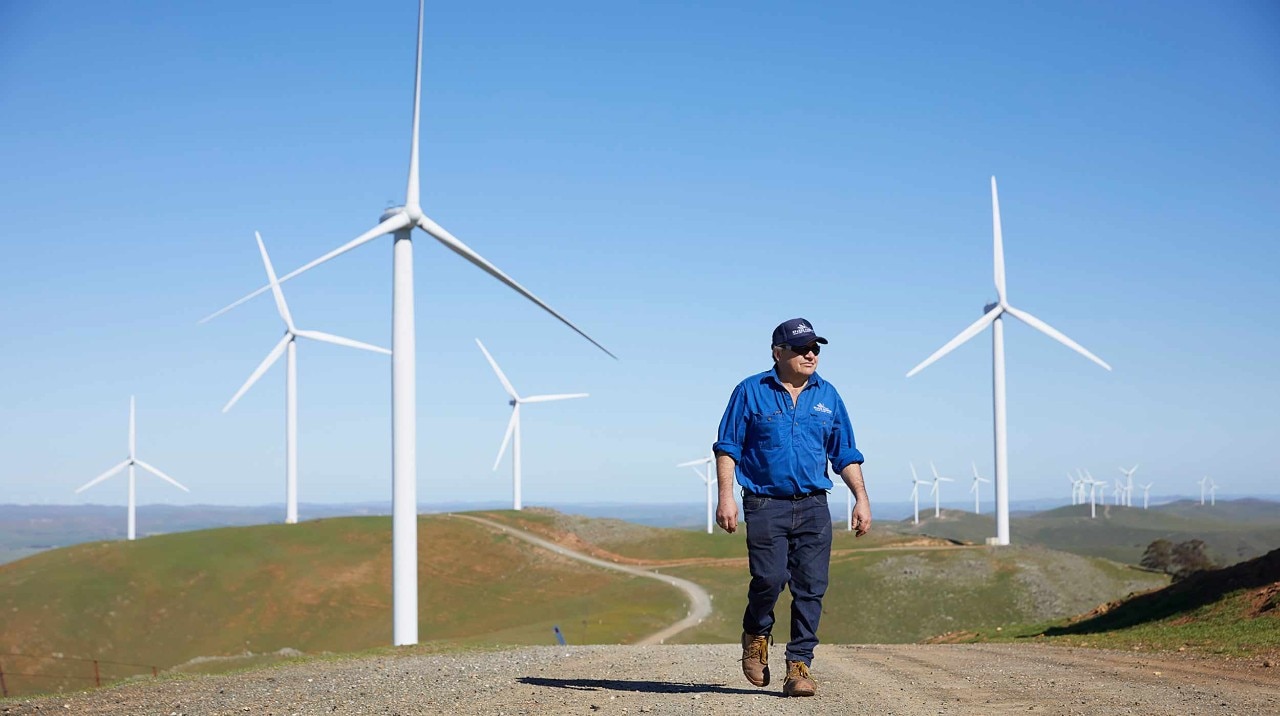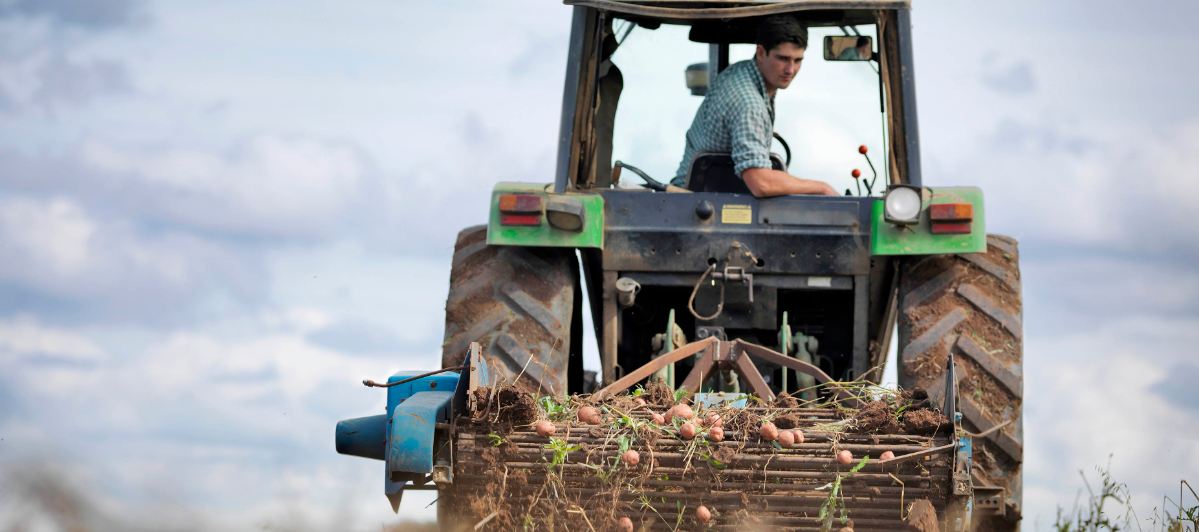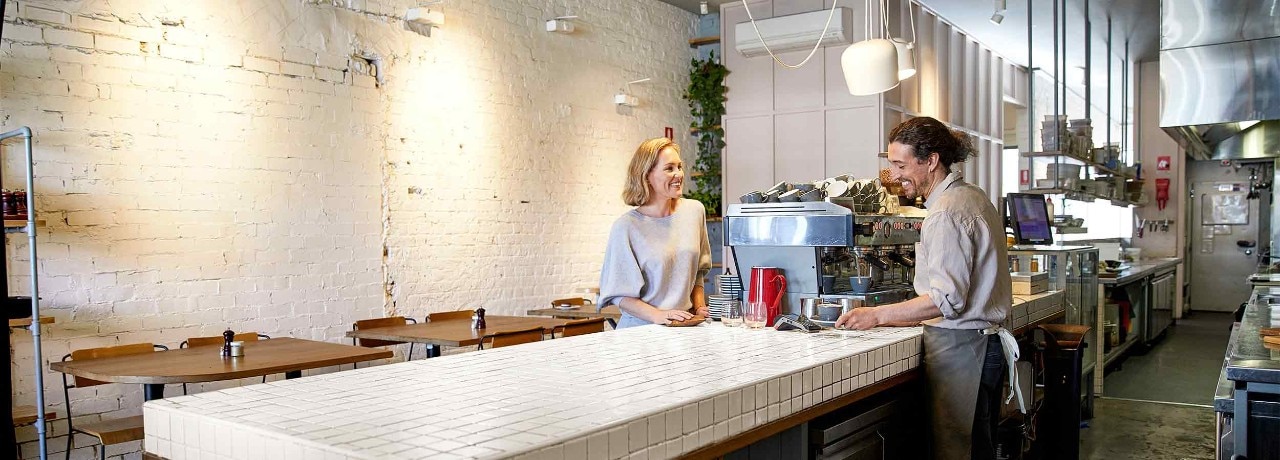Five progressive Australian agribusinesses - NAB
Progressive Australian agribusiness
How do you change an industry steeped in tradition – and often traditional ways of doing things? Well, if you’re one of the many progressive Australian agribusinesses you create new agricultural industries, conquer fresh export markets, diversify, embrace cutting-edge technology, experiment with the latest farming methods and scale up. Add these together and you have a recipe that’s inspiring younger Australians to carry on or take up an agri-enterprise career.
We take a look at five Australian agribusinesses embodying these traits and helping move Australia forward.
Building a premium business from nothing
Three decades ago Australia's Wagyu beef industry didn't exist. Today, thanks to pioneers such as Nick and Vicki Sher, the founders of Sher Wagyu, it supports some 500 Australian cattle farmers.
Given its reputation for quality, the success of Australian Wagyu might, in retrospect, seem assured. Not so, Nick states. Back in 1991, it was anything but.
"Along with a handful of other cattle farmers we got into Wagyu shortly after genetics became available outside of Japan," he explains. "Back then few Westerners had even heard of Wagyu. We hoped we’d be able to sell to the Japanese, but there were no guarantees they’d be interested in a foreign product."
Fortunately, Japanese consumers soon developed an appetite for the premium Wagyu produced by Nick and Vicki on their home farm in Ballan, Victoria. Other Asian countries and the US followed suit. But it took until 2005, after enquiries from local chefs who heard about Sher Wagyu, for the couple to land their first Australian customer. The local market required considerable promotional efforts to educate consumers about Wagyu beef.
As a mark of their progress, the Shers now have three farms, 10 full-time staff, many loyal customers and a host of industry awards. It’s an impressive CV, but Nick is quick to point out the adversities it glosses over. Along with market access and other challenges, the couple have dealt with droughts and currency fluctuations. "We had to borrow a lot of money to start producing Wagyu, then had to borrow more as our business has grown. NAB has always been very supportive and they understand our business."
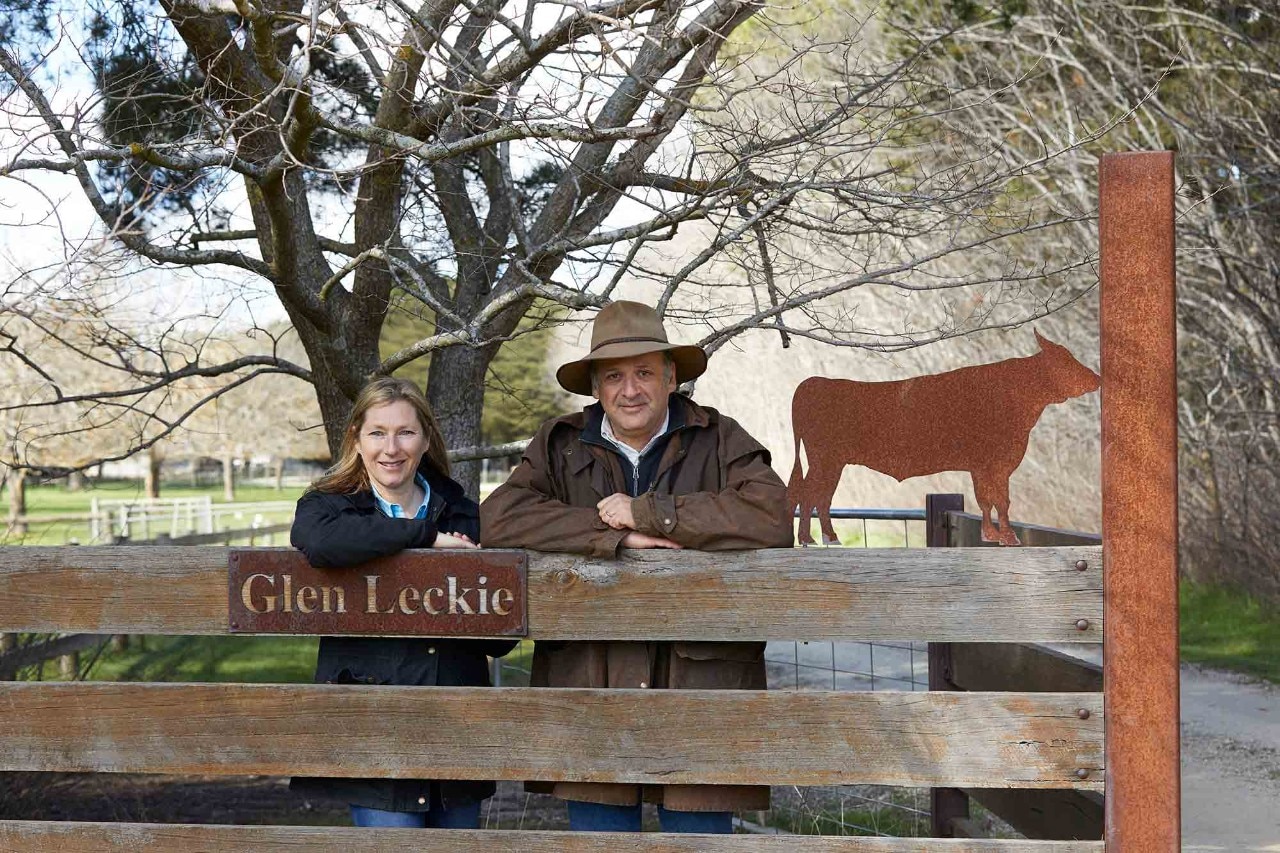
Netting growth from sustainable thinking
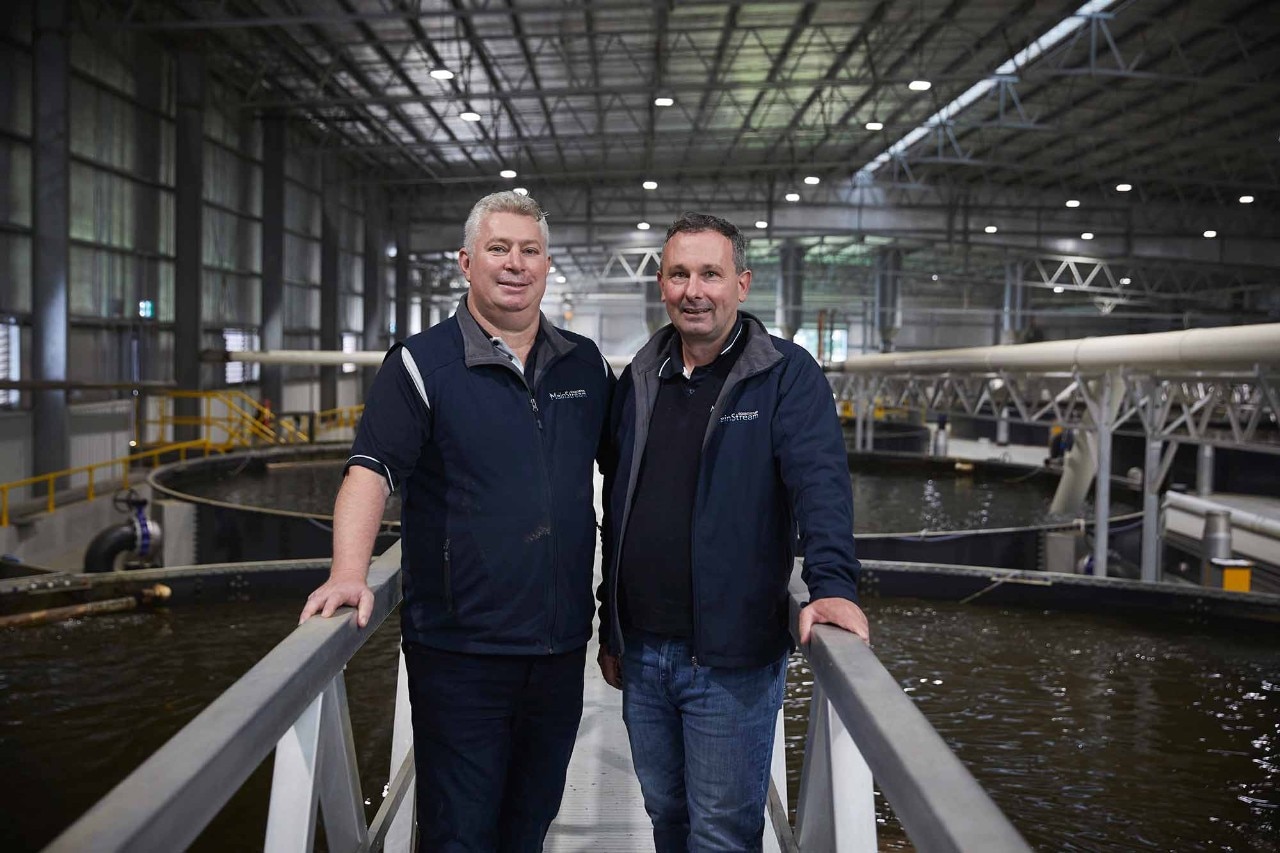
In 2001, aquatic biologist Dr Paul Harrison, along with business partner Matthew Mangan, hoped to revolutionise aquaculture with a plan to produce vast quantities of seafood in relatively small facilities built close to major population centres.
To pursue that vision, he and Matthew borrowed money from family members and NAB to launch MainStream Aquaculture. Building the initial 'urban farm' outside Melbourne was relatively straightforward; it then took a decade of intensive R&D and countless setbacks before the business became profitable.
Today, Paul and Matthew's world-leading recirculating aquaculture facility produces 3.5 million kilograms of barramundi per year for each hectare of land occupied, while using less water to grow a kilogram of fish than is required to produce the same weight of beef, pork or chicken.
Such has been their progress, a third of the barramundi consumed globally now originates from MainStream Aquaculture’s breeding program, and the company exports live fish or fillets to 25 countries. Having established a multi-site operation south of Cairns, Paul and Matthew are looking to expand globally, starting with the US.
"Dr Harrison and Mr Mangan always had a big ambition to build a company with a strong social, environmental and commercial purpose," MainStream Aquaculture CEO Boris Musa says.
"The company’s unofficial slogan is 'saving the world, one fish at a time'. We're certainly doing our bit to reduce the overfishing of oceans and feed the world."
From risk comes reward
Helen Chu arrived in Australia as a Cambodian refugee without, as she recalls, "a word of English". Two decades later, she was an English teacher. Her husband, Ian, rose from similar origins to become an electrical engineer. They then abandoned their stable careers to grow mushrooms on the outskirts of Canberra.
"In Asian cultures, the goal is to get off the land and have a white-collar job," Helen laughs. "But we wanted to work for ourselves. While researching potential business opportunities, we fell in love with the mushroom farms we visited."
In 2007, with financial backing from relatives and NAB, the Chus started with three growing sheds. They’ve since progressed to a custom-built, state-of-the-art facility. It’s been a wise investment.
"The number of Australian mushroom growers has shrunk from around 200 to around 30 since we launched," Ian points out. "You don’t have to be a large-volume grower to survive, but you definitely need to operate with the maximum possible efficiency."
As well as being efficient, the Chus are "always looking for the next business opportunity". That means helping open up new export markets for Australian farmers. "Given our backgrounds, we’re well-placed to play a role in introducing premium Australian mushrooms into countries such as Singapore," Ian says.
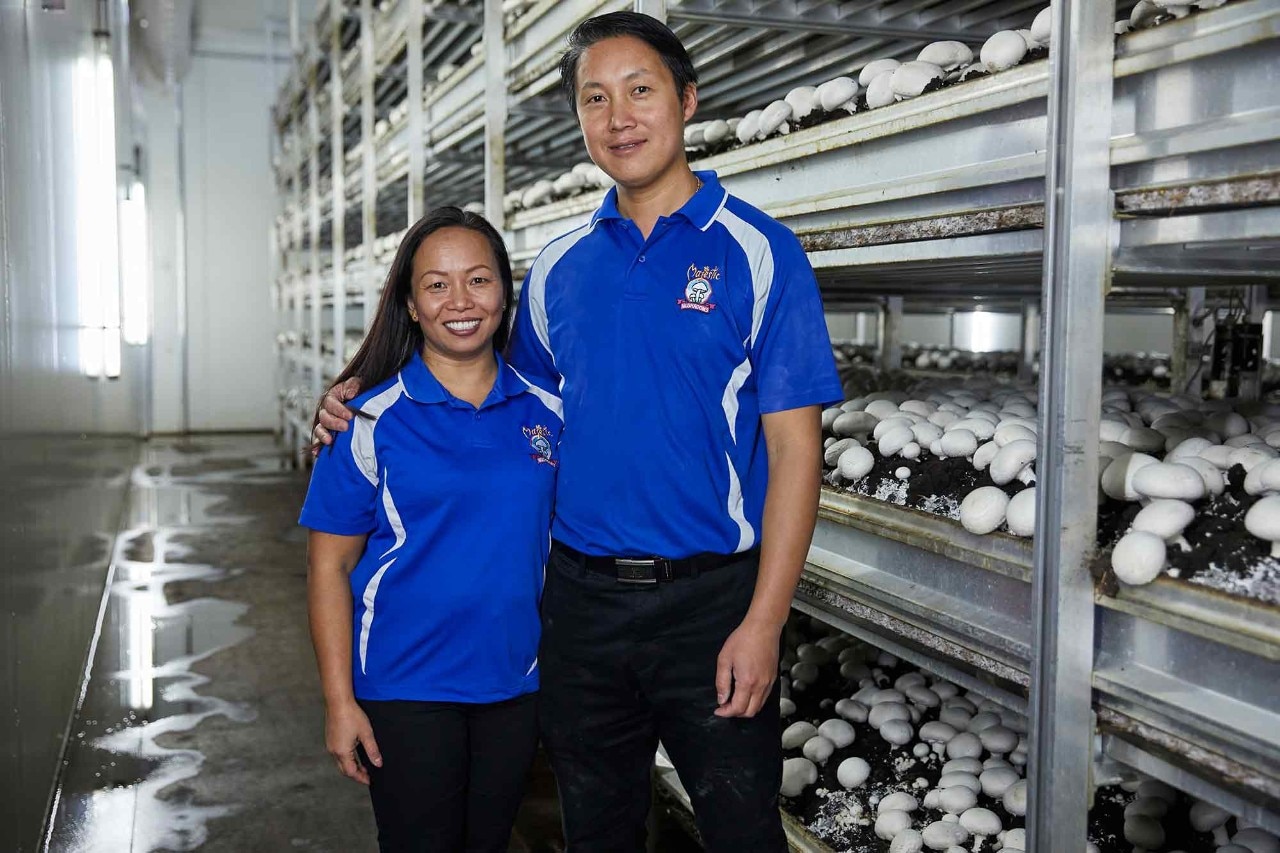
From start-up to state leader
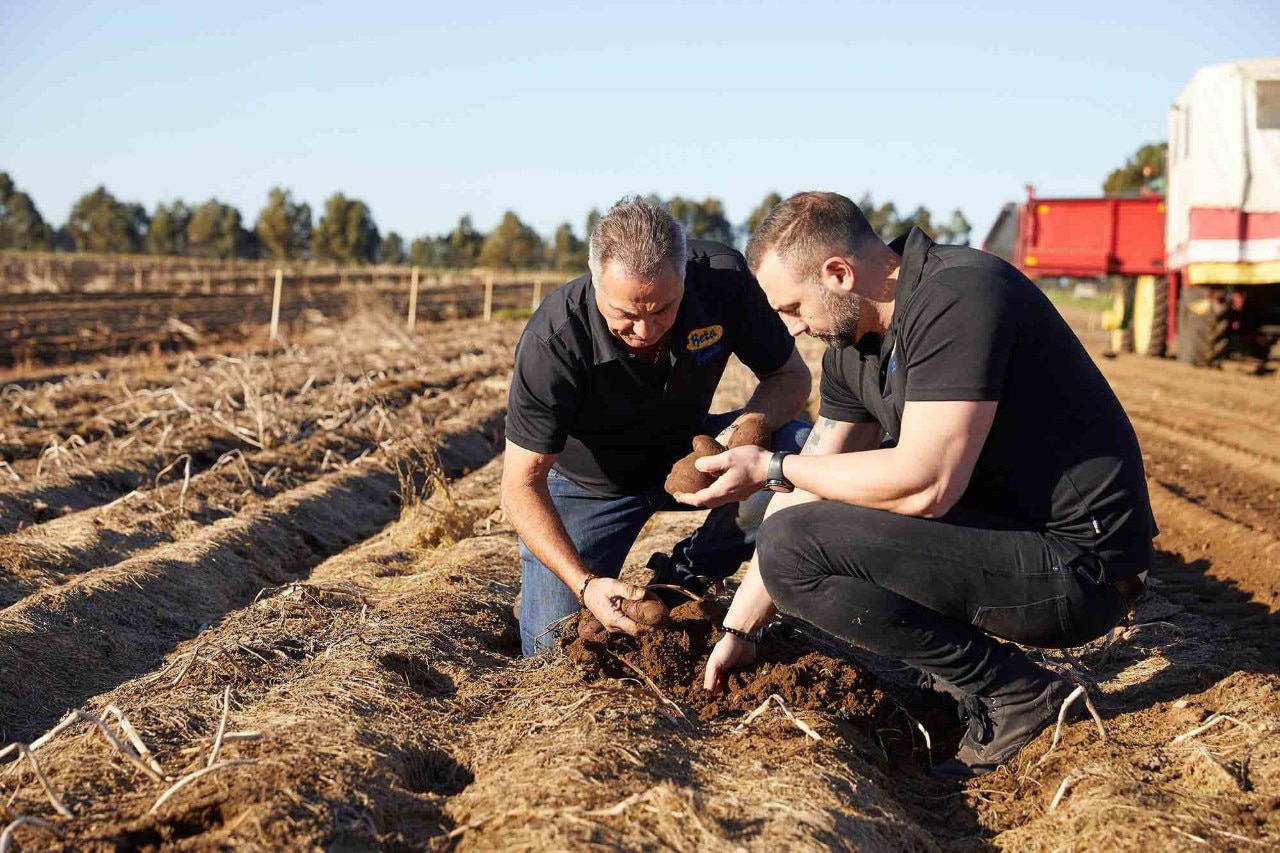
When it comes to introducing new ideas and seeing growth from that, there are few better examples than the family behind Beta Spuds. Their story began in 1993, when second-generation market gardener Carlo Cocciolone and his business partner, the late Michael Starkie, set themselves an ambitious goal: to introduce greater variety and more efficient processing methods to Western Australia's potato industry.
Today, after adding more shareholders and investments in agriculture, Beta Spuds is Western Australia's largest grower, harvester and processor of the humble spud, employing over 50 staff at its Mandogalup washing and packing facility and supplying all the state's major supermarket chains.
A focus on family involvement has helped drive this progress – Carlo’s son Matthew joined the business over a decade ago and is now CEO.
"Dad did an incredible job growing the business from a small one to a sizeable operation … we’re always striving to go one step better," Matthew says. "[He] always says it makes him proud that we're a family business. You start something and you have the legacy you want to pass on."
Mixed farming is the key to Sparks' success
It's 30 years since Ian and Pam Sparks started farming on their own, after being involved with the family farm. They leased land from Ian's father to farm sheep, cereal and hay, and undertook contracting work. Today, with sons Tyson and Branden, they own and operate three farms in South Australia. While they continue with broadacre cropping and sheep farming, they've diversified to create income from other sources. First cross wether lambs are supplied to produce snake antivenom and wind turbines run along the nonarable country.
As well as diversifying, the Sparks make use of technology previous generations of farmers could only have dreamed of – weather stations, satellite imagery and GPS-enabled precision agriculture. "It could be autonomous tractors and sprayers in the future," Ian predicts.
Yet some things never change.
"You always need to, over time, turn a profit and leave the land in better condition than you found it," Ian says. "If the next generation wants to continue with the farming business, I would like to assist them in the best way I can."
Ian also believes banks will retain their central role in Australian farming. "Having the backing of a supportive bank manager can make all the difference, especially during expansion, and the hard times. Luckily, I’ve always been able to rely on our local NAB agribusiness manager."
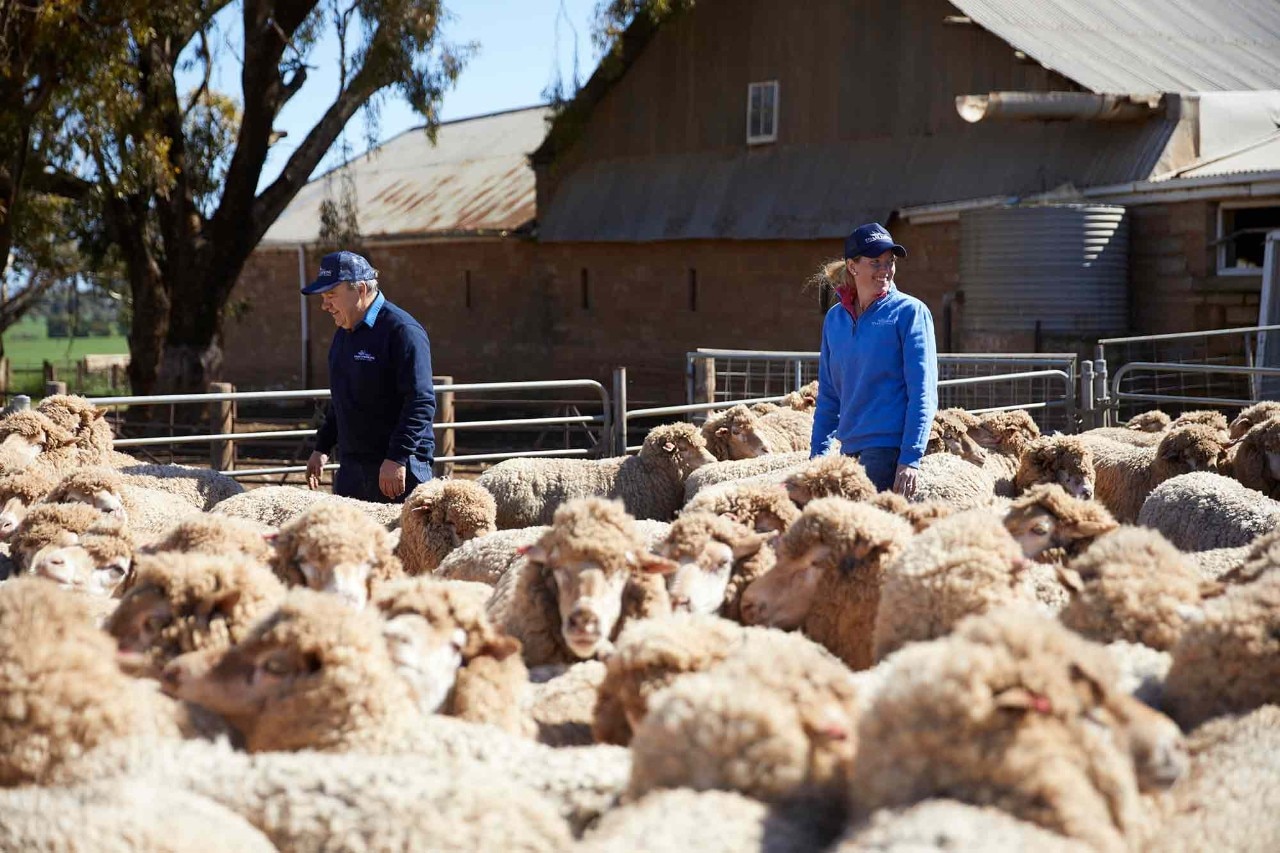
Supporting Australian farmers
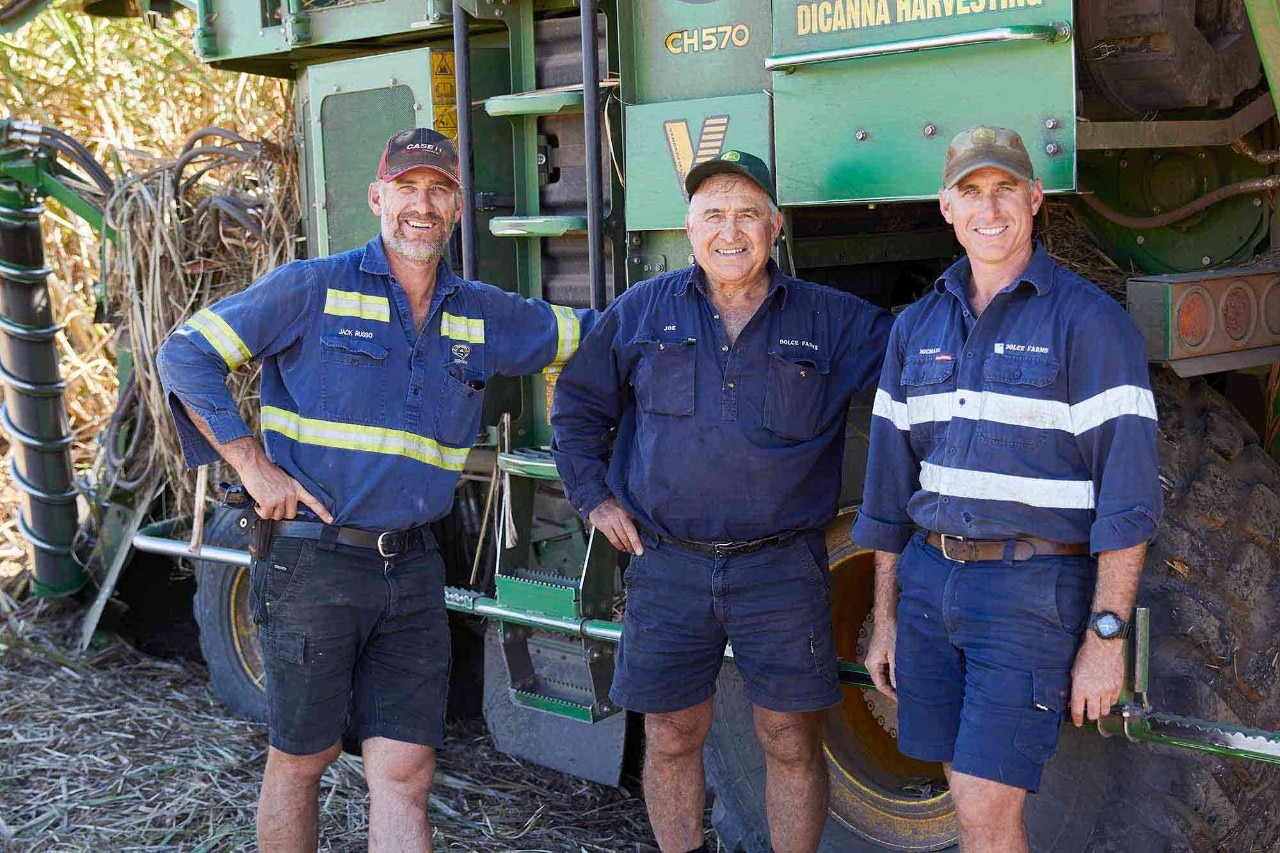
Supporting Australian farmers and their families has long been a priority for NAB, according to Julie Rynski, Executive, NAB Regional and Agribusiness. "Our agribusiness clients' adaptability and skill at spotting and seizing opportunities make NAB proud to have supported their progress through the years."
NAB has supported Australian agribusinesses through adversity and progress for around 160 years. To speak to us, contact your local Agribusiness banker, or our team on 13 10 12.
Related articles
Celebrating multi-generational Australian agribusinesses
Four successful agri-enterprises share their stories.
How resilience helped these Aussies stand tall
How do today’s agribusinesses turn adversity into opportunity?
What we’re made of: regional and agribusiness customer stories
Read inspiring success stories from our regional and agri business customers.
Our range of agribusiness products
NAB Farm Management Deposit
Our Farm Management Deposit can help you manage risks in these tough times.
NAB Business Overdraft
Manage peaks and troughs in your cash flow with an overdraft on your transaction account, starting from $20K.
Insurance and advice
Explore solutions that can help protect both your business and your employees.
Get in touch
Talk to an agribusiness expert
We’ve got agribusiness bankers across the country. Find the locations and contact details for a banker near you.
Sales enquiries
Let us help with your business banking needs. Request a call back to chat to one of our agribusiness bankers.
Contact us
Explore our business banking contact information and get support with a wide range of products, services and topics.
Terms and Conditions
Apologies but the Important Information section you are trying to view is not displaying properly at the moment. Please refresh the page or try again later.
Target Market Determinations for these products are available at nab.com.au/TMD.

